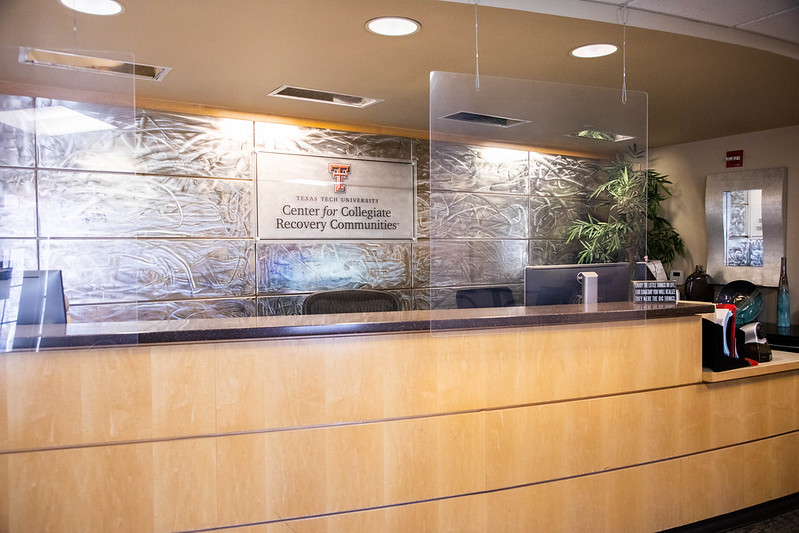
Center for Collegiate Recovery Communities: Historic Resource for Students in Recovery
Established in 1986 at Texas Tech, the Center for the Study of Addiction opened as a resource for students in recovery who wanted to pursue a career as a Licensed Chemical Dependency Counselor. Later renamed to the Center for Collegiate Recovery Communities (CCRC), the center has played an essential role in providing resources, a safe space, and scholarships for both undergraduate and graduate students in recovery.
Over the years, the center continued to evolve. In 2004 the Substance Abuse and Mental Health Services Administration (SAMHSA) and the U.S. Department of Education awarded the CCRC a grant to develop a systematic curriculum offering guidance to other universities on establishing their collegiate recovery programs. The resulting curriculum, Making an Opportunity on your Campus: A Comprehensive Curriculum for Designing Collegiate Recovery, has since been distributed to hundreds of universities across the nation.
CCRC Directors
- Carl Andersen, Ph.D., LMFT
- 1986 - 2002
- Kitty S. Harris, Ph.D., LMFT
- 2002 - 2013
- Thomas Kimball, Ph.D., LMFT
- 2013 – present
- 2013 – present
Currently, the CCRC supports over 110 undergraduate and graduate students with scholarship funding. Today the center is open to all Texas Tech students, regardless of academic program of study. The center has grown to become a national leader in collegiate recovery, offering students resources from academic advising, recovery housing, community activities, and more.
“Part of our mission is to empower other schools to provide services for students in recovery, as there is a need for recovery schools nationwide,” said Thomas Kimball, director of the Center for Collegiate Recovery Communities. “As the field of recovery evolves, the CCRC strives to meet students where they are in their recovery process so we can assist each student according to his or her specific needs.”
Under Kimball’s leadership, the center has become increasingly involved with the Association of Recovery in Higher Education, promoting and advocating for collegiate recovery. Students can also now pursue study abroad through the center with a designated option for students in recovery.
“Dr. Carl Andersen and Dr. Kitty Harris assembled the robust and sustainable foundation of the center,” said Vincent Sanchez, associate director of the CCRC. “Without their commitment and tireless efforts, the CCRC would not be where we are today.”
Vincent explains that the center is a safe space for students in recovery to enjoy their college experience away from alcohol and substance abuse near campus.
“Several former CCRC students are now in leadership positions at other recovery colleges and universities, taking what they learned at TTU and molding it to fit into their respective universities,” Vincent said.
The CCRC’s current 75 More campaign aims to increase the number of students to 200. The center is also working with university partners to create a similar program to the CCRC model for those who have mental health concerns.
“The best thing about working at the CCRC is seeing students flourish in recovery as they progress through their chosen field of study,” Kimball said. “Recognizing mental health concerns is an important aspect of working with students in recovery, as up to fifty percent of people who have substance use problems have an underlying mental health condition.”
